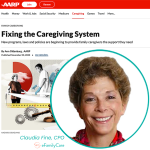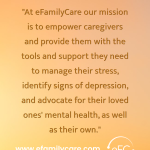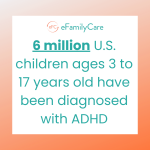Hispanic communities, like many other minority groups, face several barriers to accessing healthcare and receiving appropriate care. These barriers can have significant implications for their overall health and well-being.
eFamilyCare can play a crucial role in overcoming barriers to healthcare access within Hispanic communities by providing tailored solutions that address the specific needs and challenges these communities face. Here are a few examples on how we can support Hispanic communities when faced with these obstacles.

Language and Communication
- Limited English proficiency can be a significant barrier. Many Hispanic individuals may not speak English fluently, making it challenging to communicate with healthcare providers and understand medical instructions.
- eFamilyCare has bilingual Care Advisers who are fluent in both English and Spanish. These advisers can assist Hispanic individuals in navigating the healthcare system, scheduling appointments, and understanding medical instructions, eliminating language barriers.
Transportation
- Limited access to reliable transportation can make it difficult for individuals to reach healthcare facilities, particularly in rural areas or areas with poor public transportation.
- eFamilyCare Care Advisers also identify resources (within a plan or local) that include free transportation and many others.
Cultural Competence
- Healthcare providers may lack cultural competence, which can result in misunderstandings and miscommunication. Understanding cultural beliefs, traditions, and values is crucial for providing effective care.
- eFamilyCare’s bilingual Care Advisers are culturally competent. They are more sensitive to the cultural beliefs, values, and traditions of Hispanic communities, creating a more inclusive and understanding healthcare environment.
Economic Factors
- Socioeconomic factors, such as poverty and low income, can limit access to healthcare services. Many Hispanic individuals and families may struggle to afford medical expenses even with insurance.
- eFamilyCare provides information about financial assistance programs, sliding scale fees, and affordable healthcare options, making it easier for low-income individuals within Hispanic communities to access care.
Lack of Preventive Care
- Limited access to preventive healthcare services, such as vaccinations and screenings, can result in delayed diagnoses and more severe health conditions.
- eFamilyCare’s Care Advisers identify preventive health education programs and provide reminders for vaccinations and screenings, emphasizing the importance of early detection and prevention to caregivers.
Health Literacy
- Low health literacy can lead to misunderstandings about medical and behavioral conditions, medications, and treatment plans, making it challenging for individuals to manage their health effectively.
- eFamilyCare’s Care Advisers educate caregivers on medical and behavioral conditions, providing resources like articles and tutorials to help them understand. Care Advisers help them navigate and manage their loved one’s treatment and challenges.
In summary, eFamilyCare can serve as a valuable resource for Hispanic communities by offering bilingual care advisers, culturally competent care, and resources in both English and Spanish. By addressing these barriers to care, eFamilyCare can help improve healthcare access and outcomes for Hispanic individuals and families, ultimately promoting better health within these communities.







